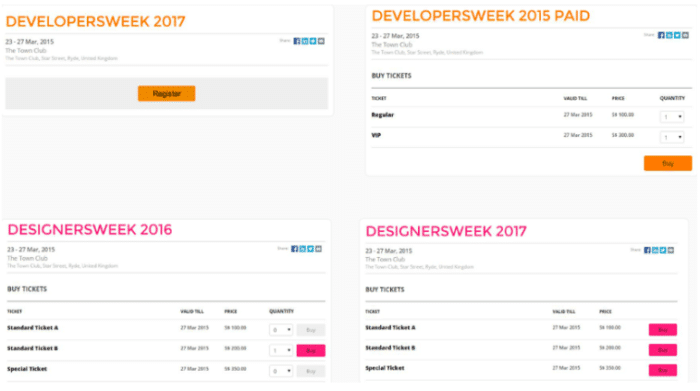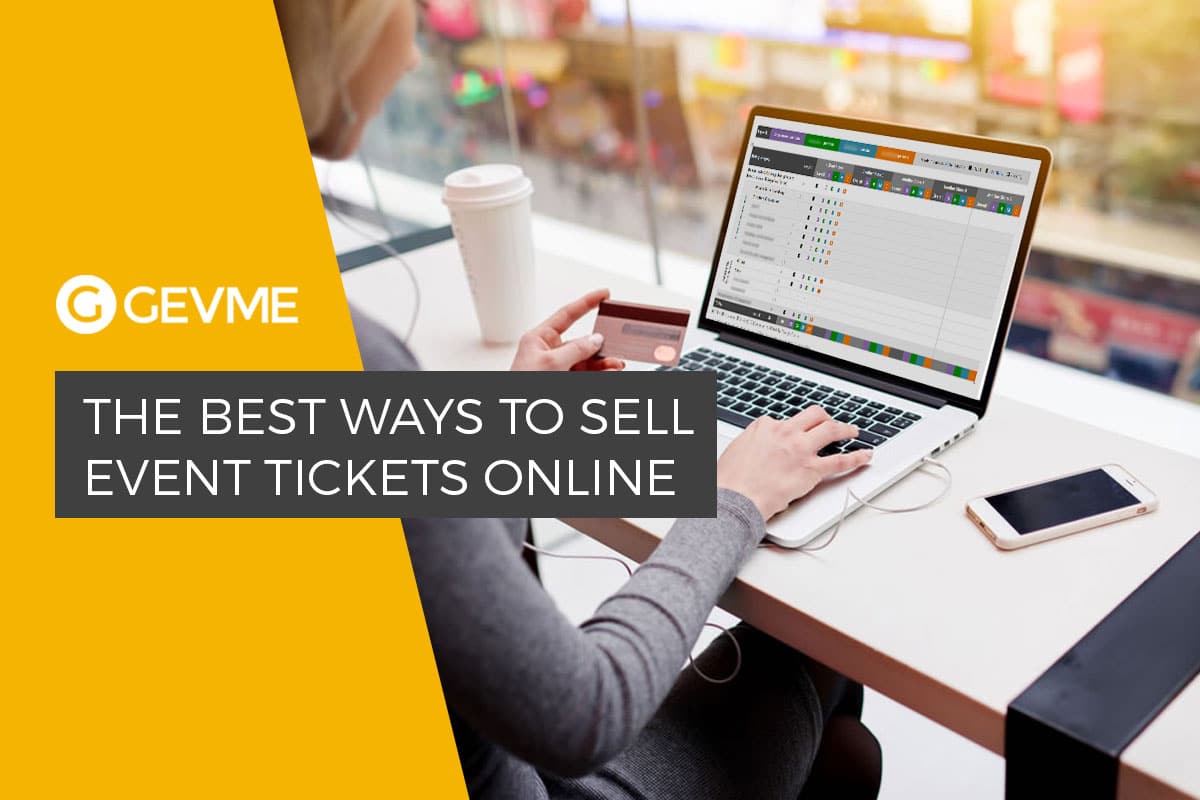The rise of online marketplaces over the last few years has transformed the way people experience events. From the first email invitation to the actual onsite check-in, the lion’s share of communication between organiser and attendee is now happening through the use of digital tools. Today, the virtual space is no longer the place where we simply stop by to check our emails once a day or chat with a friend on Facebook. It’s a place where we work, earn money, and buy things.
According to Statista, global online travel sales totaled $564.87 billion, and that number should reach $755.94 billion by 2019. What this basically means is that with each passing year, more and more people are choosing online travel booking over in-house ticket purchases. Obviously, you don’t need to be a rocket scientist to understand that online ticketing is a cornerstone of any event lifecycle. Not only does it concern registration experiences but the use of digital is also becoming a major trend in terms of mobile tickets used for onsite check-in.
In this blog post, we analyse how you can generate maximum event attendance by using a digitally driven approach to ticket selling step by step:
Create your own event ticketing platform
Establishing a simple ticket purchase flow on a website is the fundamental goal. To make it work with any audience, you must choose an event ticketing software that puts customisation as a priority. Especially if you have to reflect multiple access categories on your event website, you should be able to configure the page flexibly. Test a form builder, and check whether you can clearly identify ticket types, their prices, and what’s covered. This should be done for each access category. Within the Gevme registration app, you can find different templates for customisable ticketing pages:

Define your audience
To sell event tickets online, you should have a very clear understanding of who your target buyer is. Unless you’re organising a party for ten people, it seems like a no-brainer that you’ll have to deal with multiple audience categories. So how do you cater to the needs of everyone?
Regardless of the channels you use to sell event tickets online, customer segmentation is something you should use to your advantage. Here are several tips on how to segment ticket buyers:
- Evaluate demographics: You can win the attention of millennials by selling your tickets on Facebook, while email marketing will probably work better with an older audience. Segmenting your audience by age, sex, gender, and occupation is the starting point.
- Capture geographical information: You know what an epic fail is in any event promotion campaign? When you send the same email to your clients from the U.S. and Europe at the same time. Geographical segmentation helps you schedule email campaigns by time zone, which means you can reach out to each of your prospective registrants at the right time.
- Tap into behaviours: Depending on what data you have at your disposal, you can align ticket selling campaigns with the habits and preferences of your target audience. For instance, you could track the time of year/day when people tend to buy tickets and their preferred channels as well as payment methods.
Prepare advertising campaigns for different channels
Once you have a very clear understanding of who your buyers are, start building a tailored advertising strategy. Here are the basic channels you can utilise to put your event in front of the right target audience:
- Social media: From a teenager to a super-busy company owner, there are certain social media platforms that suit the needs of everyone. Based on segmentation results, choose several channels that your audience uses actively. We recommend starting with Facebook ads. Selling tickets on Facebook is a good idea, not only because this is the place where you can meet large-scale audiences but also because Facebook has a very handy event setup and promotion tool with post-boosting capabilities. Here is an example of a Facebook event ad that sends a user directly to a registration form:

- Event discovery websites: Apart from Facebook Events, there are dedicated event discovery platforms like Goldstar that your target users could use to search for events. The advantage of using such channels is that you can drive targeted registrations directly from there, so your users don’t have to go to your event website to sign up.
- Email: Target your messages to specific segments, add tailored CTAs, and automate blasting through email marketing tools. To maximise the impact, you could also add some visuals from your previous events or treat the audience to special offers.
Set up analytics and test your ad campaigns
Analytics is a gold mine for event ticketing insights. Tools like Google Analytics can be used to see how people actually respond to your event registration page, to see what sign-up or payment methods they choose, and can even track how they interact with specific fields of a registration form.
Since running ad campaigns usually costs you some money, it’s important to ensure that your investment pays off. Don’t just float with your ad campaigns; explore the ways you can optimise them through testing:
- Use Facebook’s relevance score to test your Facebook ad campaigns – This is the module that evaluates the ways your target audience responds to each particular test ad.
- Google Optimize will help you analyse the performance of ads that you put on your event website or other relevant platforms.
Online event ticketing services: Key requirements
Whether your event is paid or free, you need a registration gateway that gets people through the door. With mobile-driven ticketing on the rise, event professionals need a reliable online ticketing system to ensure that your target audience has the best registration experience. Here are the key features you should be interested in when choosing your online ticketing software:
- An easy-to-use form builder: The fewer fields, the more wins there will be. A strong online ticketing tool should come with good capabilities for form customisation. Look for solutions that use pre-population of data to simplify the process of registration for your existing clients.
- Flexible payments system: Provide your registrants with a good choice of payment methods. Using PayPal for event registration is a safe and convenient option, but setting up several extra methods can increase your conversion rates.
- Capabilities for the management of extra offers: Buyers love personalised offers. To spice up your registration process, look for platforms that can help you facilitate some extra marketing through promo codes, early bird rates, and more.
- Automated email marketing: You need a strong tool for building a bridge between your registration form and the target audience. We recommend choosing an easy-to-use email service that doesn’t waste your time in writing messages from scratch but still adds a personal touch to each of them.
Conclusion
A sold-out event is an event with a strong online ticketing strategy behind it. Whether it’s a business conference or a local cook-off contest, every event should offer capabilities for online registration. With a reliable event registration software, you not only ensure that your target audience has a frictionless online purchase experience but through integration with mobile app technology, you can also establish a mobile-driven check-in system.








